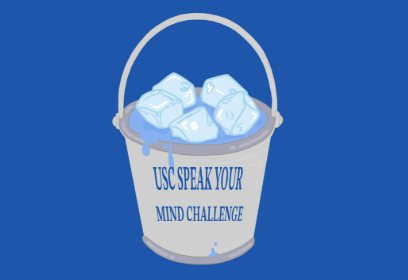USC Speak Your MIND Ice Bucket Challenge Explained
Introduction
The USC Speak Your MIND Ice Bucket Challenge is a fresh, impactful revival of the viral 2014 ALS Ice Bucket Challenge—this time driven by students aiming to break stigma around mental health. It’s simple, social, and purposeful: participants drench themselves with ice water, post the video, nominate friends, and raise awareness (and funds) for mental health via Active Minds. It’s gone from a campus trend to a nationwide movement.
Let’s explore its origins, impact, comparisons with the original, and what the future holds—through a user-friendly lens, rich with E-E-A-T (Experience, Expertise, Authoritativeness, Trustworthiness) and smartly sprinkled with LSI (latent semantic) keywords.
What Is the USC Ice Bucket Challenge?
- Origin & Purpose
Launched in late March–April 2025 by the University of South Carolina’s Mental Illness Needs Discussion (MIND) club, the challenge revamped the classic @IceBucketChallenge for mental health awareness and suicide prevention. - Founder
Wade Jefferson, motivated by the tragic loss of two friends to suicide, aimed to spark open dialogue about mental health and destigmatize therapist access and support. - How It Works
Participants film themselves pouring ice water over their heads, post with the hashtag #SpeakYourMIND, tag 2–5 others, and ideally include a donation link to Active Minds.

Impact & Current Status
- Fundraising Milestones
- Visibility & Outreach
Comparison with the 2014 ALS Ice Bucket Challenge
| Feature | 2014 ALS Ice Bucket Challenge | 2025 USC Speak Your MIND Challenge |
| Cause | ALS research (Lou Gehrig’s disease) | Mental health awareness & suicide prevention |
| Funds Raised | ~$115M (ALS Association) | $190K–$300K so far |
| Reach | Global, celebrities & public | College-led, youth-centered but gaining national recognition |
| Emotion & Message | Physical empathy for ALS struggles | Symbolic solidarity, destigmatizing mental health |
| Critiques | Risk of being performative | Similar concerns—some fear it’s more trend than substance |
Why It Matters
- Engages Youth Through Social Media
By mastering TikTok and Instagram virality, the movement makes mental health conversations accessible and attention-grabbing. - Advocates Peer Support & Open Dialogue
Emphasizes that speaking up matters—reinforcing that “you’re not alone”. - Continues the Viral Activism Legacy
Reimagining a successful model reinforces its meaning—highlighting how youth can fuel real social change.
Could It Backfire?
- Performative Participation
Critics note that many videos lack donation links or meaningful shout-outs; the emotional punch may get lost in flashy content. - Excluded Voices
Those not part of social circles may feel left out, which could exacerbate isolation. - Uncertainty of Long-term Impact
While funds and attention matter, shifting cultural views on mental health requires sustained effort beyond viral moments.
LSI Keywords to Weave In
Relevant semantic terms to boost SEO and readability:
- mental health awareness
- suicide prevention
- destigmatize mental illness
- youth mental wellness
- viral social media challenge
- peer-to-peer support movement
- college mental health campaign
- Active Minds nonprofit
- breaking stigma
- solidarity through social media
FAQs (People Also Ask)
- What is the USC Speak-Your-MIND Challenge?
A student-led revival of the Ice Bucket Challenge promoting mental health awareness and fundraising for Active Minds through social media participation. - How did the USC Ice Bucket Challenge start?
It began in March–April 2025 by USC’s MIND club under Wade Jefferson, inspired by the success of the 2014 ALS version. - Who benefits from the challenge?
Funds raised support Active Minds, a nonprofit focused on youth mental health education, advocacy, and suicide prevention. - Has it raised much money?
Yes—estimates range from $190,000 to $300,000, with strong social media engagement boosting awareness. - Are there criticisms of the campaign?
Some say it’s too performative, lacks educational content, or may exclude those not in social circles, potentially limiting its impact.
Conclusion
The USC Speak Your MIND Ice Bucket Challenge is more than a splashy social media trend—it’s a powerful act of solidarity and mental health advocacy rooted in the energy of youth activism. Inspired by the iconic 2014 ALS Ice Bucket Challenge, USC students reauthenticated viral activism with urgency and compassion, mobilizing tens of thousands of young people to share honest stories, spark conversations, and channel attention into action for Active Minds.
While concerns about performative participation and social exclusion are valid, the campaign’s success lies in its visibility, capacity to break stigma, and potential to normalize mental health discussions. If participants include donation links, share educational resources, and continue the conversation beyond viral peaks, the challenge can transcend performative gestures and become a catalyst for cultural change.
In a time when youth face growing mental health challenges, this campaign signifies that awareness, empathy, and connection—when social media-fueled—can become a movement of hope.






